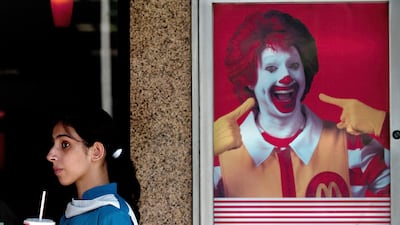As The National reported yesterday, the UAE has published the law on excise taxes related to sugary fizzy drinks, energy drinks and tobacco. The Government plans to introduce a 100 per cent tax on tobacco and energy drinks and a 50 per cent rate on sugary drinks. While the introduction of such a tax will hit those who consume these products regularly, there may well be health benefits to accrue if it breaks habits and changes consumption habits.
Doctors in the UAE think that the tax will curb bad habits, tackle obesity and lead to lifestyle changes, which explains why this newspaper has long advocated for the introduction of such a duty. One also hopes that as our bad habits are taxed, virtue can also be rewarded. In some other parts of the world, health insurance premiums are lower for those who can prove they are non-smokers or if they lead an active lifestyle.
Statistics released by the World Health Organisation show that 8 per cent of the population in the UAE suffers from diabetes, while 70.7 per cent is overweight, and 34.5 per cent obese. These numbers are a stunning rebuke to the way we live our lives. Though part of the blame may fall on the lack of physical exercise, nutrition is a core factor. The sharp reminder provided by a sugar tax should help drive us all towards better habits or at the very least give pause for thought.
It may also bring other unexpected results. The introduction of the "Red Bull tax" in France in 2014 prompted manufacturers to lower the caffeine content in energy drinks. For supermarkets here, it might be an opportunity to stock healthier snacks and drinks at checkouts instead of candy bars and chocolate. Changing mindsets here begins with changing habits. Such changes will prosper further if we reward those who lead a healthier lifestyle.
Follow The National's Opinion section on Twitter
___________________
Read more on taxes
> Editorial: VAT in UAE will curb unhealthy consumption
> Explainer: Tax in the UAE: Everything you need to know about VAT and a little bit more
> UAE publishes excise tax law for tobacco and energy and fizzy drinks
> Cake or biscuit? Case of the Jaffa Cakes shows the many layers of VAT law
___________________

